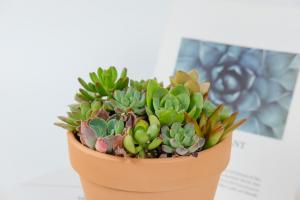Can You Compost Tomato Plants with Blight?
Tomatoes are often a favorite crop among gardeners, but unfortunately, they can be susceptible to blight. Blight is a fungal disease that can cause the tomato plants to wilt, turn yellow, and eventually die. If you're dealing with blight in your tomato plants, you may be wondering what you can do with them. Can you compost them? In this article, we'll explore whether or not it's safe to compost tomato plants with blight.
What is Composting?
Composting is the process of recycling organic materials like food scraps, leaves, and yard waste into a nutrient-rich soil amendment. By using compost in your garden, you're adding essential nutrients and organic matter back into the soil. Composting is a great way to reduce the amount of waste that ends up in landfills and to create a sustainable source of soil enrichment.
Is it Safe to Compost Tomato Plants with Blight?
If you have tomato plants with blight, you may be hesitant to compost them due to concerns about spreading the disease. The good news is that it's safe to compost tomato plants with blight, as long as the compost pile gets hot enough to kill the spores. The ideal temperature for composting is between 120 and 150°F (49-65°C). A properly maintained compost pile will typically reach these temperatures in the middle of the pile.
However, it's important to note that not all home compost piles reach these temperatures. Therefore, if you're unsure whether your compost pile is heating up enough to kill the blight spores, it's best to err on the side of caution and avoid composting tomato plants with blight.
How to Compost Tomato Plants with Blight
If you've decided to compost your tomato plants with blight, it's important to follow a few guidelines to ensure that the compost pile gets hot enough to kill the spores.
Cut the tomato plants into small pieces to speed up the composting process.
Layer the tomato plants with other organic materials like leaves and grass clippings.
Mix the compost pile regularly to distribute the heat evenly and ensure proper decomposition.
Avoid adding any diseased plant material to the compost pile once it has cooled down.
Conclusion
If you're dealing with blight in your tomato plants, don't let it go to waste. Composting tomato plants with blight is safe as long as the compost pile gets hot enough to kill the spores. By following these guidelines and properly maintaining your compost pile, you can turn your diseased plants into a nutrient-rich soil amendment that will benefit your garden.

 how many times do yo...
how many times do yo... how many planted tre...
how many planted tre... how many pine trees ...
how many pine trees ... how many pecan trees...
how many pecan trees... how many plants comp...
how many plants comp... how many plants can ...
how many plants can ... how many plants and ...
how many plants and ... how many pepper plan...
how many pepper plan...






























